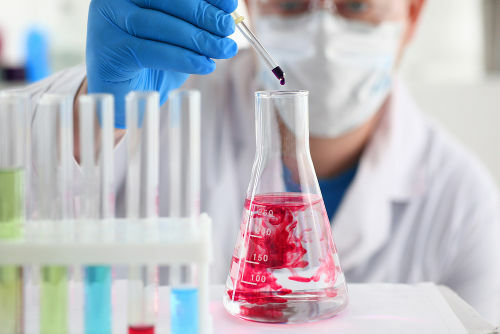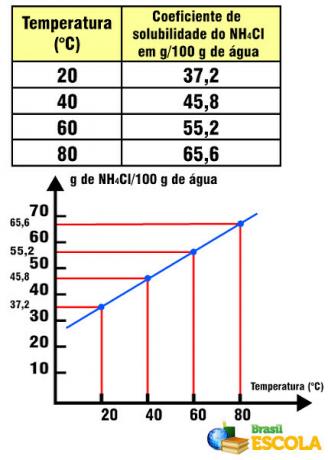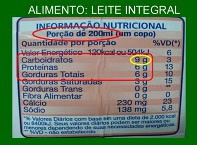enthalpy is the amount of energy in a given reaction, the variation of Enthalpy refers to the origin of this energy. For example, if the energy comes from a Fusion reaction (passage of a substance from the solid state to the liquid), we will have the Fusion Enthalpy. There are several types of Enthalpy, see below:
Formation enthalpy: is the enthalpy variation verified in the formation of 1 mol of molecules of a given substance in the standard state (under ambient conditions (25°C and 1 atm) and in the more stable allotropic state). Let's consider water to be this substance:
H2 (g) + ½ O2 (g) → 1 H2O(l) ∆Hf = -68.3 Kcal/mol
The enthalpy of water formation (H2O) is -68.3 Kcal/mol, this value corresponds to obtaining 1 mol of H2O (l) through elements in standard state.
Neutralization enthalpy: value resulting from the heat absorbed in the neutralization of 1 mol of OH- (aq) with 1 mol of H+ (aq), being they in dilute aqueous solutions.
H+ (aq) + OH- (aq) → H2the (1) ∆H = -13.8 Kcal/mol
dissolution enthalpy
: is the heat found in the dissolution of 1 mol of solute in solvent, in an amount sufficient to obtain a diluted solution.HCl (g) + H2O (1) → H30+(aq) + Cl- (aq) ∆H = -18.0 Kcal /mol
The equation above represents the enthalpy of dissolution of the hydrochloric gas.
Do not stop now... There's more after the advertising ;)
Combustion enthalpy: is the heat absorbed in the total combustion of 1 mol of the substance, under ambient conditions (25°C and 1 atm). Combustion releases heat, it takes place between a fuel and an oxidizer, the fuel can be any substance, the main oxidizer is oxygen.
1 CH4(g) + 2 O2(g) → CO2(g) + 2 H2O(1) ∆H = - 212.8 Kcal/mol
The value - 212.8 Kcal/mol refers to the combustion of 1 mol of CH methane4(g) at ambient conditions of 25°C and pressure of 1 atm.
Enthalpy of solidification: corresponds to the enthalpy change in the total solidification of 1 mol of the substance, at a pressure of 1 atm.
H2O (1) → H2O(s) Δ H = - 1.7 Kcal / mol
Enthalpy of condensation: referring to the enthalpy variation in the total condensation of 1 mol of the substance, at a pressure of 1 atm.
H2O (v) → H2O (l) Δ H = - 10.5 Kcal / mol
Fusion enthalpy: enthalpy change in the total fusion of 1 mol of the substance at a pressure of 1 atm.
H2O(s) → H2O (l) Δ H = + 1.7 Kcal / mol
vaporization enthalpy: corresponds to the enthalpy change in the total vaporization of 1 mol of the substance, at a pressure of 1 atm.
H2O (1) → H2O (v) Δ H = + 10.5 Kcal / mol
By Líria Alves
Graduated in Chemistry
Would you like to reference this text in a school or academic work? Look:
SOUZA, Líria Alves de. "Enthalpy variation in reactions"; Brazil School. Available in: https://brasilescola.uol.com.br/quimica/variacao-entalpia-nas-reacoes.htm. Accessed on June 28, 2021.



